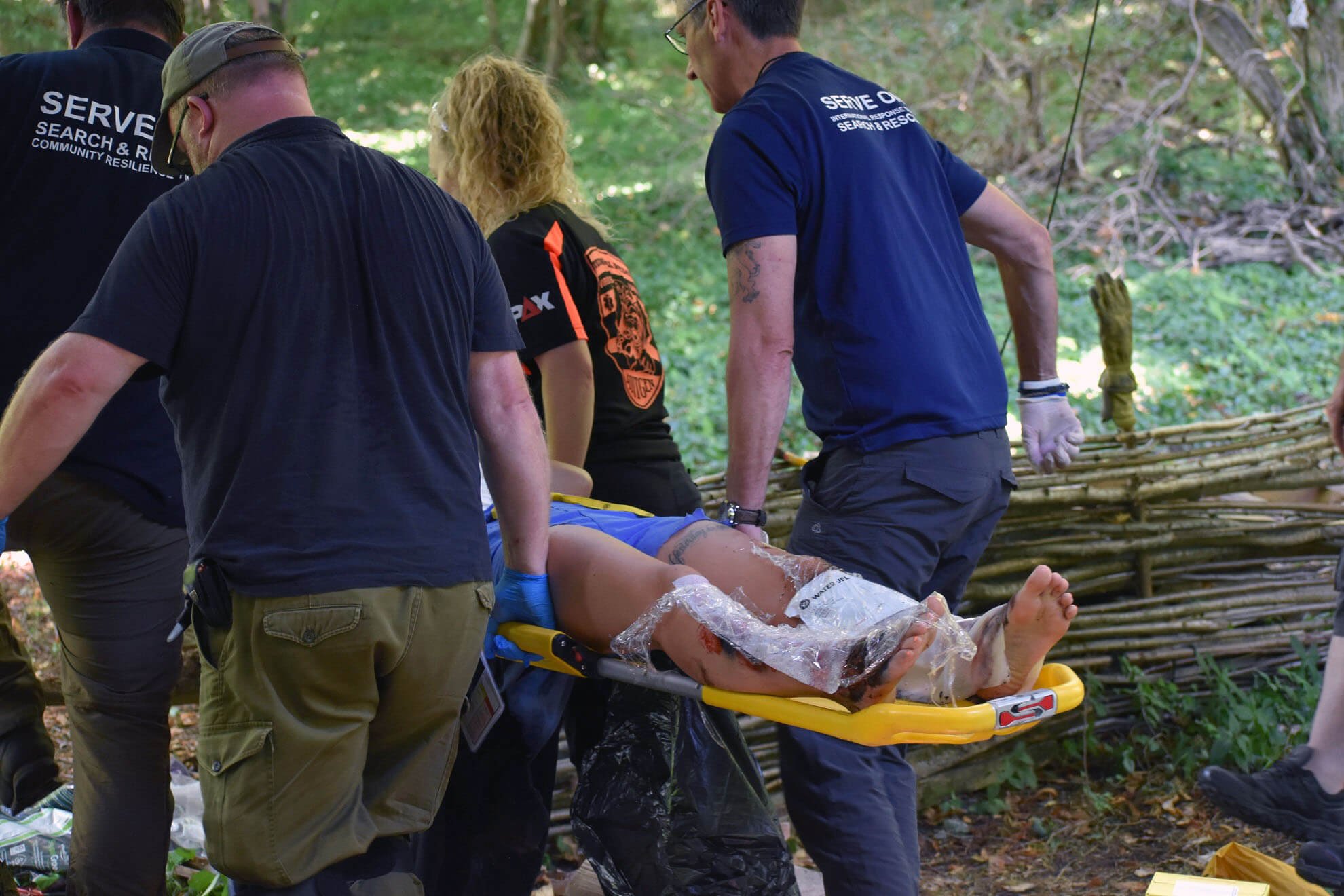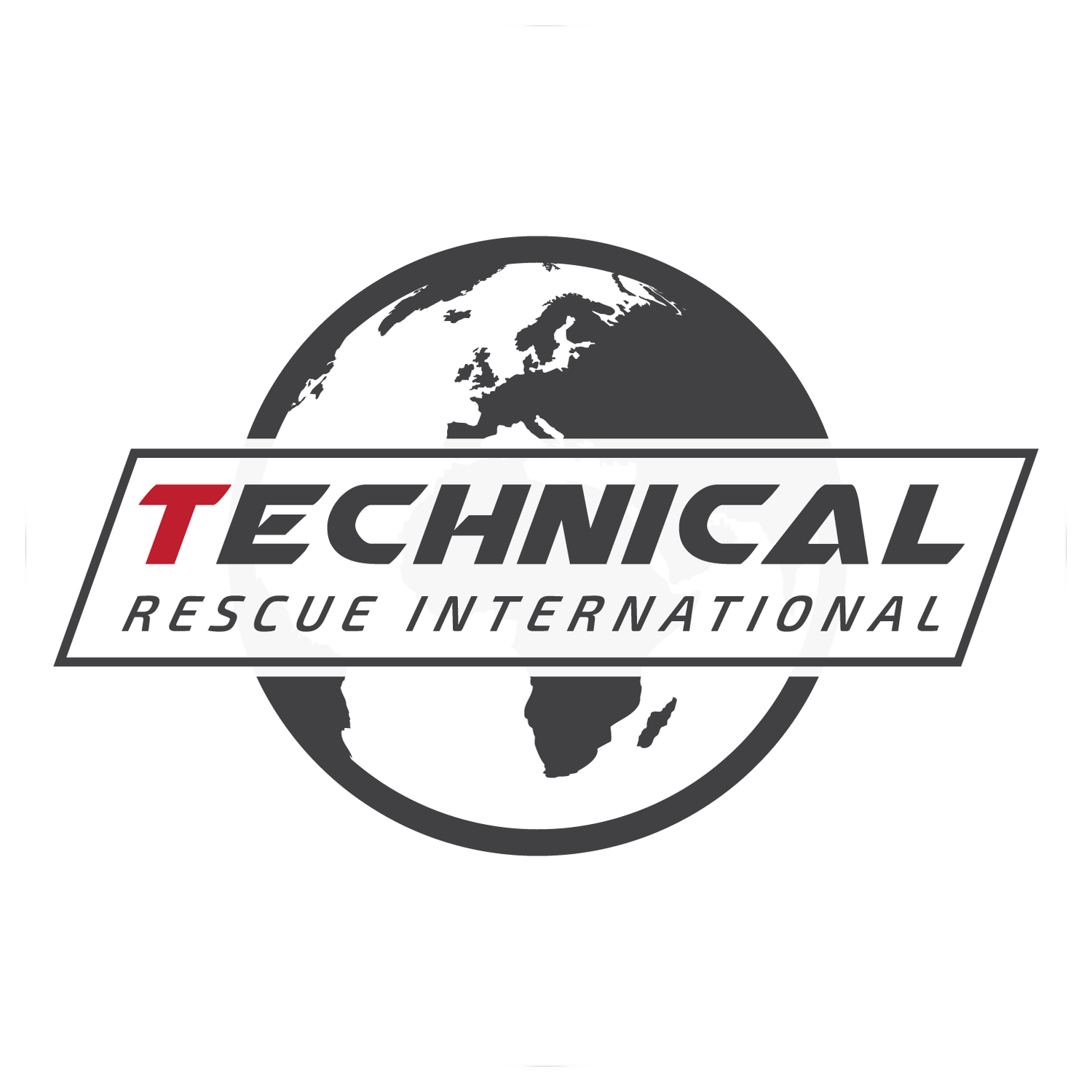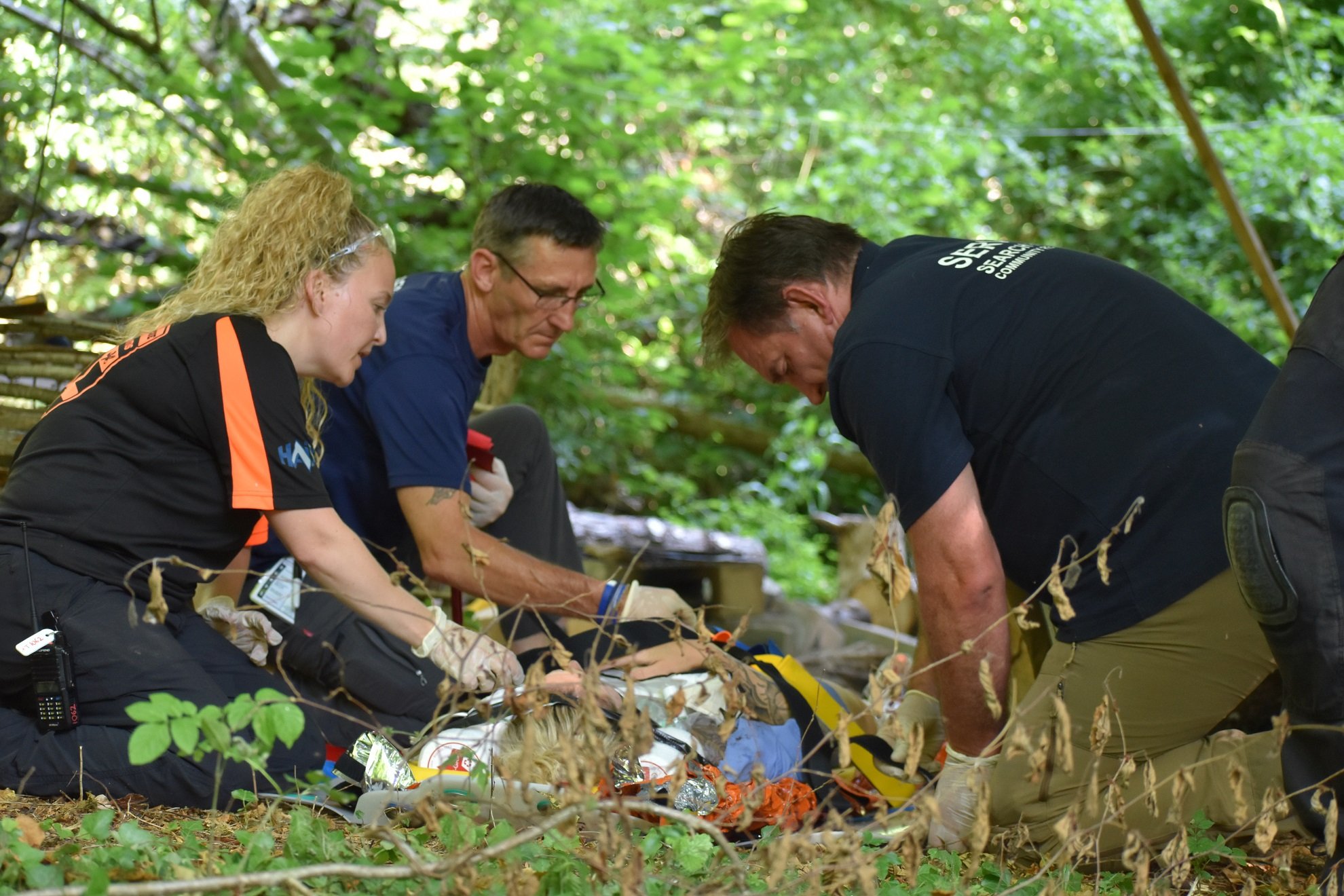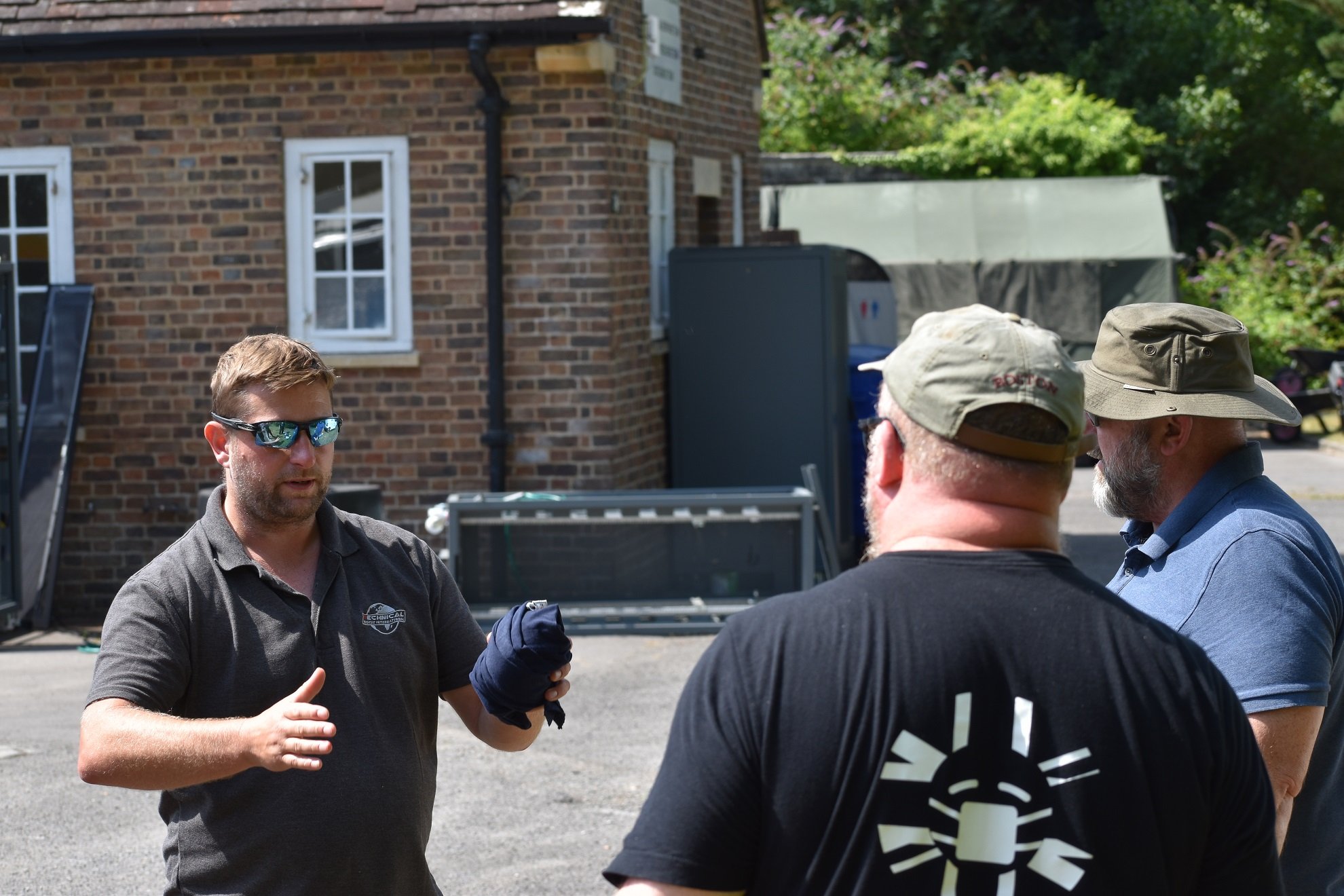
Trauma & Casualty Care
Technical Rescue International provides a range of accredited first aid and trauma qualifications that fulfill industry demands and HSE regulations.
We have a a range of trauma training courses to choose from.
First Aid Trauma & Casualty Care - Emergency
FTACC-E
The FTACC-E course is designed specifically for emergency first aiders at work in low risk workplaces. Candidates will be equipped with the skills and knowledge needed to confidently manage first aid emergencies in an engaging way, drawing on our expertise providing casualty care in a real-world setting. Qualification Network United Kingdom (QNUK) regulates the FTACC-E qualification. The training fulfills the Emergency First Aid at Work (EFAW) syllabus in the Health and Safety at Work (First Aid) Regulations 1981 regulation, as well as the Faculty of Pre-Hospital Care (FPHC) Descriptor B on the Pre-Hospital Emergency Medicine (PHEM) competency framework.
-
FTACC is a dynamic, engaging first aid programme designed by experienced pre-hospital doctors and already used by emergency services and industry.
It meets and surpasses the Health and Safety Executive\s(HSE) emergency first aid criteria. It takes a unique approach that promotes knowledge and skill retention while also outlining a clear path of action that ensures better patient outcomes.
FTACC - E is the first course in our Integrated Emergency Care Programme (IECP), which takes candidates from basic first aid to critical care interventions. The IECP is a progressive and methodical approach to improving skills and knowledge while also empowering people to save lives.
Successful Candidates will receive a QNUK Level 3 Award in First Aid Trauma and Casualty - Emergency (FTACC - E) (RQF).
-
Successful completion of the course will enable delegates to fulfil the following outcomes.
Role and responsibilities of an Emergency First Aider
Infection prevention and control
Calling for help
Scene assessment
Safe Approach
Casualty Assessment
Minor bleeding and injuries
Internal and external bleeding
Unconscious breathing casualty
Casualty with no signs of life
Mild and severe choking
Stroke
Minor burns and scalds
Handover to ambulance
Reporting procedures
-
Course duration dependent on your needs. Please contact us to discuss.
First Aid Trauma & Casualty Care
FTACC
FTACC delivers an occupational level of workplace first aid, specifically designed for emergency first aiders at work and low risk workplaces. Candidates will be equipped with skills and knowledge to confidently manage first aid emergencies in an engaging manner using our experience in providing casualty care in a realworld environment.
-
FTACC is a dynamic, engaging effective first aid programme, developed by leading pre-hospital doctors and already adopted be the emergency services and industry.
It meets the Health and Safety Executive (HSE) first aid standards. It adopts an innovative approach which ensures retention of knowledge and skills as well as outline a clear course of action that ensures better patient outcomes.
FTACC is the occupational first aid level course in TAG’s Integrated Emergency Care Programme (IECP) which progresses candidates from first aid through to critical care interventions. IECP is a progressive and systematic pathway to enhancing skills, knowledge and empowering people to save lives.
Successful Candidates will receive a QNUK Level 3 Award in First Aid Trauma and Casualty (FTACC) (RQF).
-
Successful completion of the course will enable delegates to fulfil the following outcomes.
Role and responsibilities of an Emergency First Aider
Infection prevention and control
Calling for help
Scene assessment
Safe Approach
Casualty Assessment
Minor bleeding and injuries
Internal and external bleeding
Unconscious breathing casualty
Casualty with no signs of life
Mild and severe choking
Stroke
Minor burns and scalds
Handover to ambulance
Reporting procedures
Sudden poisoning
Head injuries
Seizures
Chest injuries
Asthma attacks
Anaphylactic shock
Acute Coronary Syndrome
Sprains, strains, dislocations and fractures
-
Course duration dependent on your needs. Please contact us to discuss.
Rescue Trauma & Casualty Care
RTACC
RTACC delivers a high level of advanced first aid, specifically designed for emergency services personnel and high-risk workplace emergency response team members. Candidates will be equipped with skills and knowledge to confidently manage time critical medical and trauma emergencies in an engaging manner using our experience in providing casualty care in a real-world environment. RTACC is a regulated qualification through Qualification Network United Kingdom (QNUK). It exceeds the First Aid at Work (FAW) syllabus and additional training stipulated in the Health and Safety at Work (First Aid) Regulations 1981 guidance. The RTACC course maps to the Faculty of Pre-Hospital Care (FPHC) Descriptor E on the Pre-Hospital Emergency Medicine (PHEM) competency framework.
-
RTACC is an advanced prehospital care provider level focused trauma and casualty care course, it can be adapted and delivered with the specific needs of organisations in mind. Candidates will be exposed to real life scenarios environments which are greatly enhanced by live actors and simulation.
RTACC has been developed by leading pre-hospital doctors and healthcare professionals and immerses the learner in their own working environment, delivering interventions and knowledge to assess, treat and prioritise a wide range of time critical and life changing features of trauma thus ensuring better outcomes and excellent casualty care.
Successful Candidates will receive a QNUK Level 3 Award in Rescue Trauma and Casualty Care (RTACC) (RQF).
-
Successful completion of the course will enable delegates to fulfil the following outcomes.
Role and Responsibilities of an RTACC Provider
Kinematics, injury patterns and mechanism of injury
Scene assessment, safe approach and initial actions
Massive haemorrhage control using a stepwise approach or direct/indirect interventions including direct pressure, wound packing, haemostatics and tourniquets
Airway assessment and management using manual techniques and airway adjuncts including oropharyngeal, nasopharyngeal and supraglottic airways
Recognising, assessing and treating thoracic trauma and complications including safe use of emergency oxygen and application of chest dressings/seals
Circulatory assessment, management of internal and external blood loss, wounds and hypovolaemic shock | Head and other injuries assessment and treatment including pain scoring, minor injuries, thermal injuries, musculoskeletal injuries, environmental exposure/effects of cold and heat, manual inline stabilisation, helmet removal, full body immobilisation and limb immobilisation
Casualty top to toe assessment/reassessment and history taking
Adult, child and infant Basic Life Support including CPR and safe use of AED/Defibrillator, recognition and treatment of mild and severe choking and recovery position
Recognition, assessment and treatment medical emergencies including common respiratory conditions, major illnesses and severity factors
Adult Immediate Life Support (ILS) including pit crew resuscitation, airway management and ventilation using bag-valve mask and pocket mask and return of spontaneous circulation drills
Safe use of emergency oxygen including health and safety, indications and contraindications, dosage and methods of administration and monitoring the effects of emergency oxygen
Additional Content such as medical rescue, special patient groups, triage and medical devices available on request
-
Course duration dependent on your needs. Please contact us to discuss.







